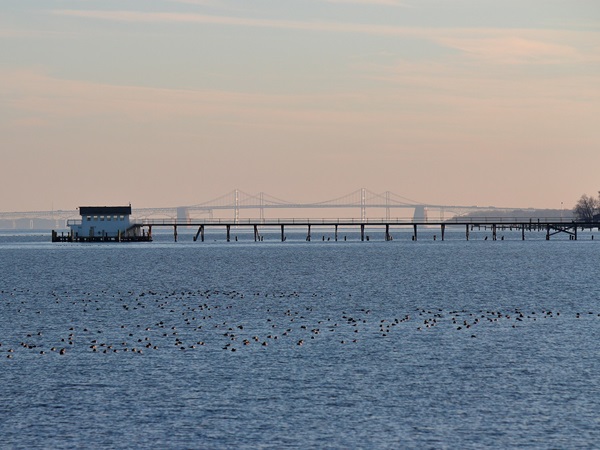ANNAPOLIS, MD—Maryland Governor Wes Moore has announced his administration’s support for the Chesapeake Bay Legacy Act, a legislative package aimed at protecting and restoring the Chesapeake Bay. The bill represents a key component of the Moore-Miller administration’s environmental priorities for the 2025 General Assembly.
The legislation builds upon existing efforts to improve the Bay’s water quality by introducing comprehensive changes to support regenerative agriculture, streamlining oyster aquaculture, and creating new economic pathways for farmers and Maryland industries.
Governor Moore emphasized the importance of the Chesapeake Bay to both the state’s economy and its heritage, stating, “The Chesapeake Bay is one of our state’s most powerful vehicles for economic growth and a treasured heirloom that must be protected.” He highlighted the dual benefit of environmental protection and economic growth, asserting that “prioritizing conservation and environmental protection isn’t just the responsible thing to do — it will also help us create jobs and build new pathways to work, wages, and wealth for all Marylanders.”
Cleaner waterways support Maryland’s tourism economy, generating $3.2 billion around the Chesapeake Bay. Maryland’s seafood industry benefits from cleaner water and improved habitat, contributing $600 million annually to the state’s economy.
The Chesapeake Bay Legacy Act complements updates to the Chesapeake Bay Watershed Agreement. It focuses on creating opportunities for environmentally beneficial farming, promoting sustainable aquaculture, and using enhanced water quality monitoring to target pollution reduction projects more effectively.
One of the key features of the bill is the enablement of longer-term public land leases for farmers who utilize regenerative agricultural practices. This measure aims to address the persistent challenge of access to land and financing faced by beginning farmers, as identified by the U.S. Department of Agriculture. By providing access to acreage, the state seeks to encourage the adoption of sustainable farming techniques that improve soil health, restore biodiversity, and mitigate climate change impacts.
Allison Colden, Chesapeake Bay Foundation Maryland Executive Director, issued the following statement:
“The Chesapeake Bay Legacy Act brings hope for a healthier and more resilient future. This legislation gives our farmers, watermen, oyster growers, and restoration scientists the tools they need to succeed, and in turn, will reduce pollution in our rivers and streams.
“Maryland is at a critical point for the Chesapeake Bay and its waterways, amid historic budget challenges and an uncertain outlook at the federal level. This Act will ensure our momentum continues in the right direction — for a future where all Marylanders can enjoy clean rivers and streams, wildlife can have secure and thriving habitats from the mountains to marshes, and local businesses that rely on our natural resources can grow and prosper.
“We urge the General Assembly to pass this bill for the betterment of the Chesapeake Bay and Maryland’s people.”
This article was written with the assistance of AI and reviewed by a human editor.
Photo via Pixabay
Do you value local journalism? Support NottinghamMD.com today.

